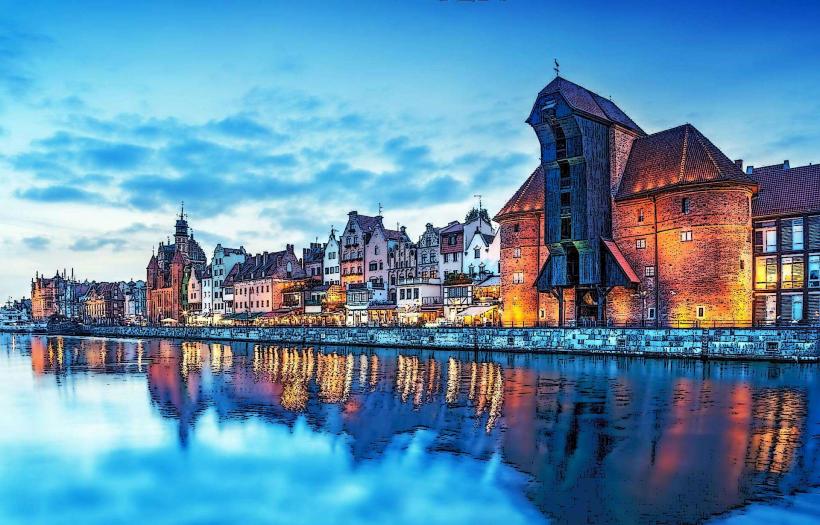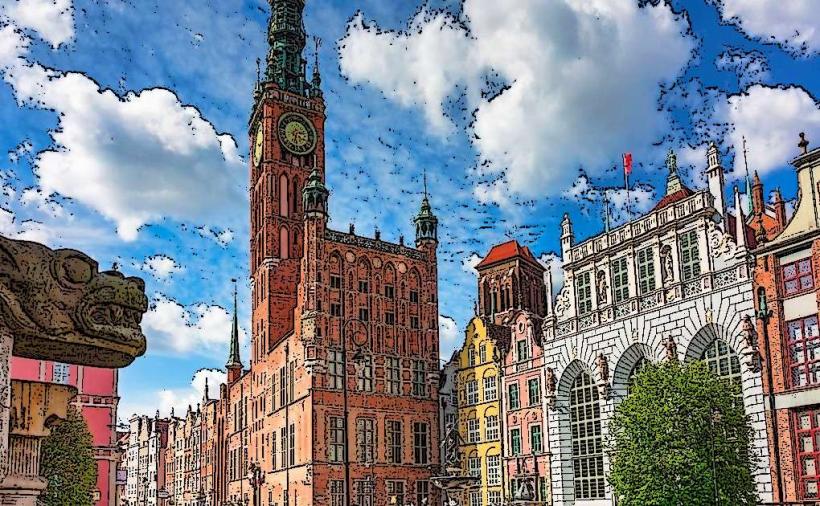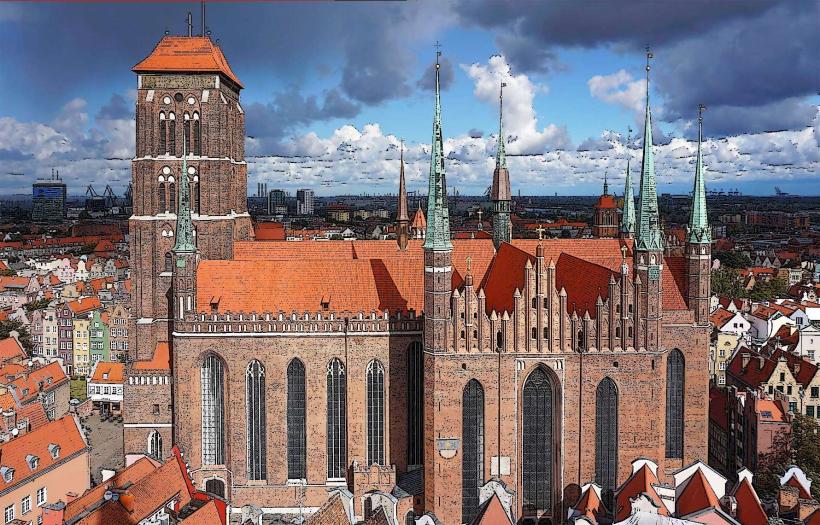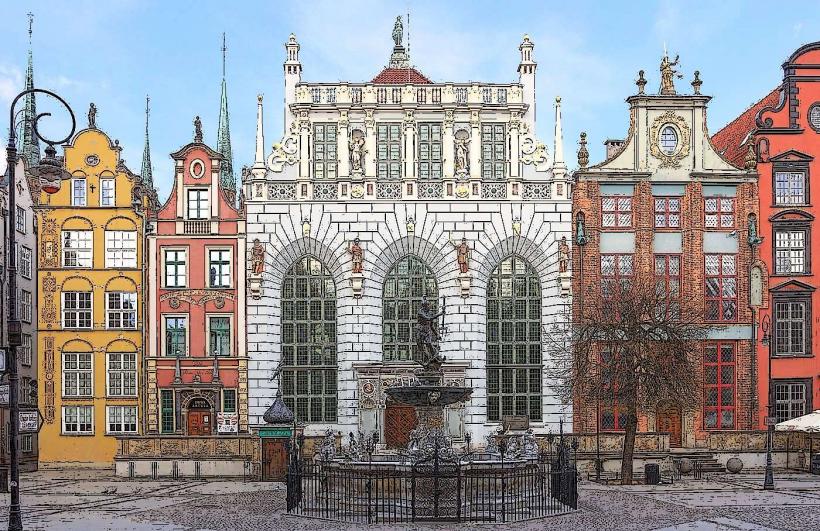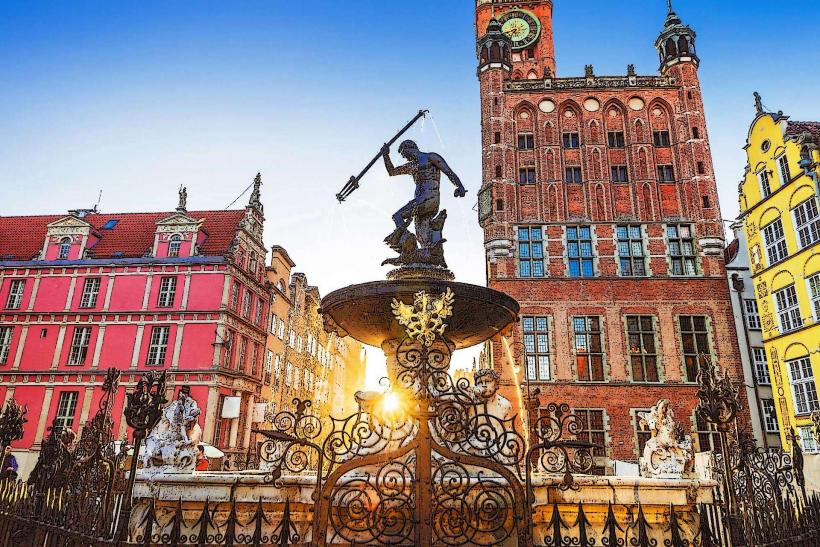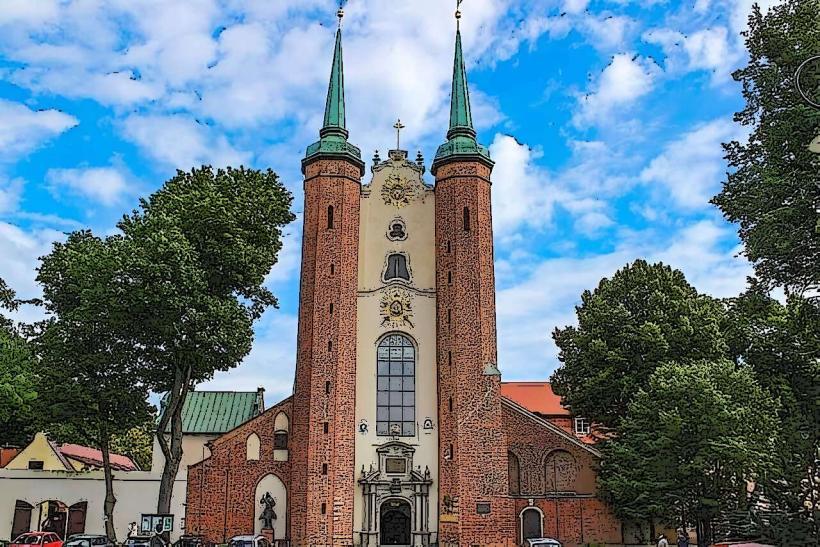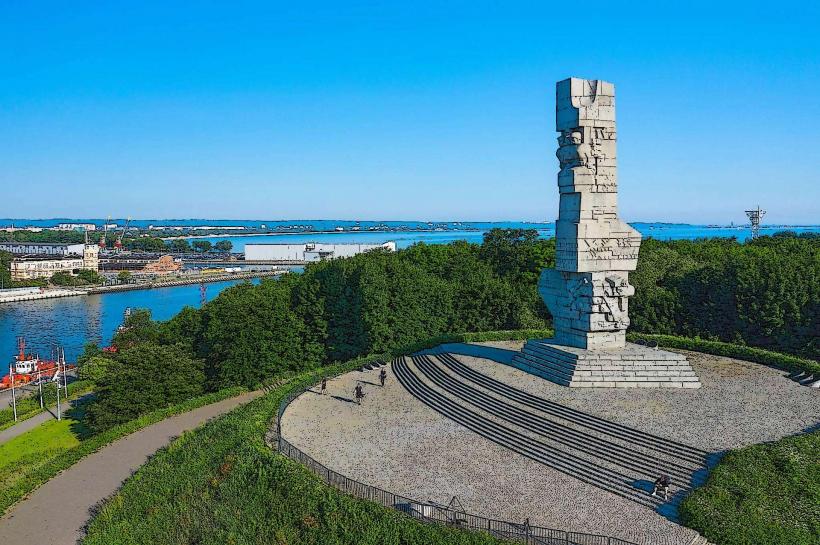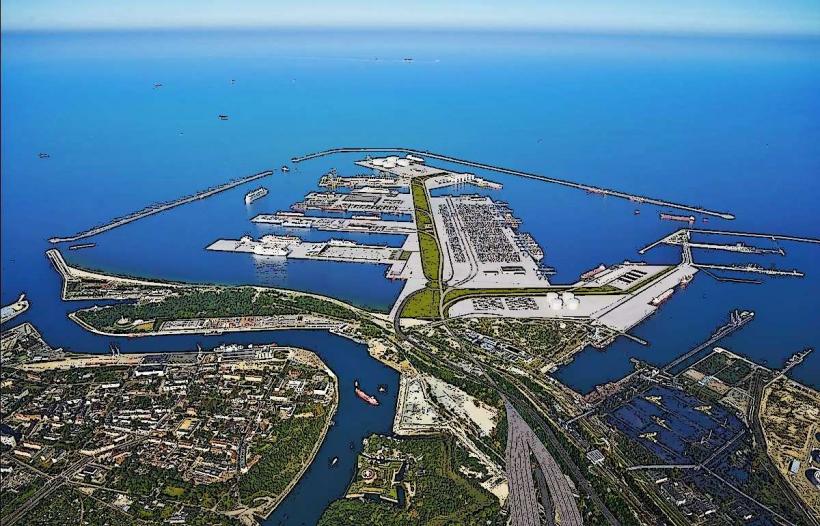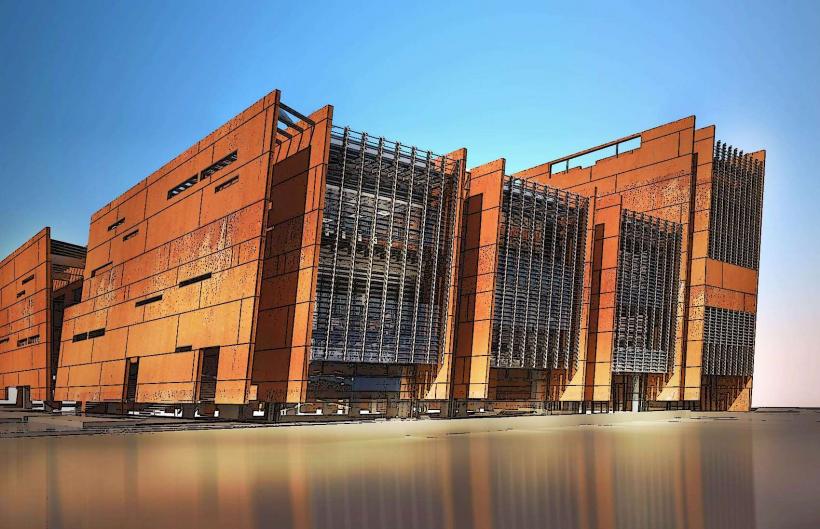Information
City: GdanskCountry: Poland
Continent: Europe
Gdańsk, located on the Baltic Sea coast in northern Poland, is one of the country’s most important and historically rich cities. It is the capital of the Pomeranian Voivodeship and plays a crucial role in Poland’s maritime trade, culture, and history. Gdańsk has a unique character, combining a maritime heritage with vibrant contemporary culture, and is one of the most visited cities in Poland.
History
Gdańsk’s history spans over a thousand years, with significant influences from both Polish and foreign powers. Originally a Slavic settlement, Gdańsk (then known as Danzig in German) became a major center for trade in the medieval period due to its strategic location on the Baltic Sea. It was part of the Hanseatic League, a powerful trading network that connected cities across northern Europe.
Throughout its history, Gdańsk has been under the control of various foreign powers, including Poland, Prussia, and Germany. In 1793, it was annexed by Prussia, and later became part of the German Empire. After World War I, it became the Free City of Danzig, a semi-autonomous city-state under the League of Nations, before being incorporated into Nazi Germany in 1939.
During World War II, Gdańsk played a pivotal role in the outbreak of the war, as the first shots were fired at the Westerplatte peninsula, leading to the invasion of Poland. The city suffered heavy damage during the war, but after 1945, Gdańsk became part of Poland once again, and efforts were made to rebuild and restore its historical architecture.
Today, Gdańsk is a symbol of Polish resilience and a modern European city, with a rich cultural and historical heritage that attracts millions of tourists each year.
Geography and Layout
Gdańsk is located on the southern coast of the Baltic Sea, along the Motława River, which divides the city into different districts. The city center, known as the Old Town (Stare Miasto), is characterized by cobblestone streets, colorful merchant houses, and historic buildings. Gdańsk is also known for its extensive port facilities, which have played a major role in the city’s economy for centuries.
The city is divided into several distinct neighborhoods, including the historic Old Town, the port district of the Gdańsk Shipyard, and modern residential areas along the coast. Gdańsk's proximity to other major cities such as Gdynia and Sopot has contributed to the development of the Tricity metropolitan area, which includes a wide range of urban, suburban, and natural landscapes.
Economy
Gdańsk has a diverse and thriving economy, with major sectors including shipping, shipbuilding, manufacturing, IT, and tourism. The city is one of Poland’s most important seaports, handling a significant portion of the country’s maritime trade. The Port of Gdańsk is one of the largest and busiest ports in the Baltic Sea, playing a crucial role in Poland’s economy.
In addition to its maritime economy, Gdańsk has become a hub for modern industries, particularly in the IT and tech sectors. The city has seen significant investment in new technologies, startups, and innovation, making it an attractive location for entrepreneurs and multinational companies. The city also has a strong manufacturing sector, particularly in shipbuilding and heavy industries.
Tourism is another key part of Gdańsk’s economy, with millions of visitors coming to the city each year to explore its rich history, beautiful architecture, and cultural offerings. The city’s historic Old Town and the Gdańsk Shipyard, along with a number of museums and cultural sites, are major draws for tourists.
Education and Research
Gdańsk is home to several well-regarded universities and research institutions. The University of Gdańsk, founded in 1970, is one of the largest and most prestigious universities in Poland, offering a wide range of academic programs in various fields. The city is also home to the Gdańsk University of Technology, a major institution for engineering and technical studies.
The city has a long tradition of scientific and academic achievement, with a strong focus on maritime research, environmental studies, and the social sciences. Gdańsk’s universities attract students from across Poland and abroad, contributing to the city’s vibrant and youthful atmosphere.
Culture
Gdańsk has a rich cultural heritage that blends Polish, German, and Baltic influences. The city is home to numerous museums, galleries, and theaters, which showcase its artistic traditions and historical legacy.
The city hosts several annual festivals, including the Gdańsk Shakespeare Festival, the St. Dominic’s Fair (one of the oldest and largest street markets in Europe), and the European Solidarity Centre’s events, which celebrate the city’s role in the fall of communism in Eastern Europe. Gdańsk is also known for its music scene, with events ranging from classical concerts to jazz festivals.
The city is home to a wide range of cultural institutions, such as the National Museum in Gdańsk, the Gdańsk History Museum, and the European Solidarity Centre, a museum dedicated to the Solidarity movement that helped bring down communism in Poland.
Public Transport and Infrastructure
Gdańsk has a well-developed public transport system, which includes buses, trams, and a regional train network that connects the city to other parts of the Tricity area and beyond. The city’s public transportation system is modern, efficient, and affordable, making it easy for residents and visitors to get around.
Gdańsk Lech Wałęsa Airport, located just outside the city center, is an important international gateway, connecting the city to major European and international destinations. The city also has good road and rail links to other parts of Poland and Europe, making it an important transport hub.
Green Spaces
Gdańsk is known for its beautiful green spaces and proximity to the Baltic coast. The city is home to several parks, including Oliwa Park, which is located near the Oliwa Cathedral and is known for its serene landscape and historical significance. The city’s proximity to the coast provides residents and visitors with easy access to beaches, which are especially popular during the summer months.
The nearby Tricity Landscape Park and the Hel Peninsula offer opportunities for hiking, cycling, and outdoor activities, while the area around the Vistula Lagoon is known for its birdwatching and natural beauty.
Modern Development and Urbanism
Gdańsk is experiencing rapid urban development, with modern residential, office, and commercial buildings being constructed in various parts of the city. This development is balanced with efforts to preserve the city’s historic character, particularly in the Old Town and the Gdańsk Shipyard area.
The city is also focusing on sustainable urban planning, with projects aimed at improving public transport, reducing air pollution, and promoting green energy. Gdańsk has also made efforts to revitalize its waterfront and port areas, turning them into vibrant cultural and residential districts.
Social Life and Lifestyle
Gdańsk offers a high quality of life, with a good balance of work, leisure, and culture. The city has a thriving café culture, with numerous cafés and restaurants offering a mix of Polish, European, and international cuisine. The city is also known for its lively nightlife, with bars, clubs, and music venues catering to a variety of tastes.
Gdańsk is a city that embraces both traditional and modern lifestyles, offering a combination of historical charm and contemporary conveniences. The city’s residents enjoy a high standard of living, with access to excellent healthcare, education, and cultural amenities.
Challenges
Like many growing cities, Gdańsk faces challenges related to urbanization, including traffic congestion, housing shortages, and environmental concerns. However, the city is taking steps to address these issues through investment in public transport, sustainable urban planning, and the promotion of green technologies.
Future Outlook
Gdańsk is expected to continue growing as a major cultural, economic, and maritime hub in the Baltic region. With its rich history, strategic location, and modern development, the city is well-positioned to become a key player in European and global markets. The combination of its historical charm, vibrant cultural scene, and forward-looking approach to urban development ensures that Gdańsk will remain one of Poland’s most dynamic and fascinating cities in the future.

